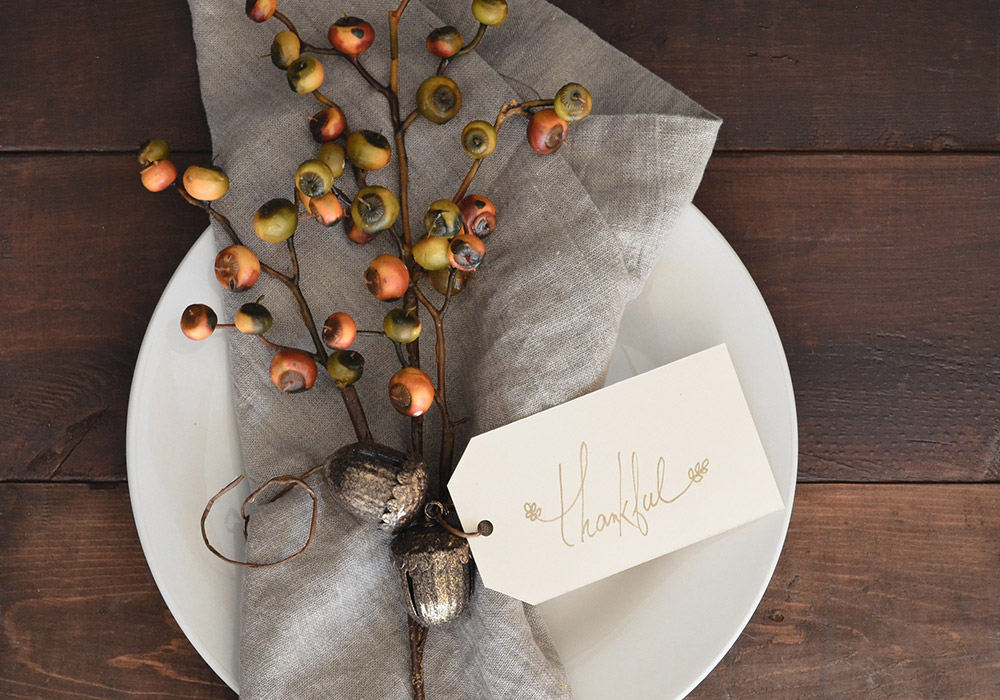As we gather with family and friends this Thanksgiving, it’s easy to think of many things to be grateful for: the spread of food before us, our health amidst a pandemic, and the people we have in our lives.
Having a day dedicated to giving thanks is a great start to a lifetime practice of gratitude. Taking note of what we are thankful for has an important health benefit that green bean casseroles and cranberry sauce can’t give you alone.
Researchers have found that daily practices of gratitude can help people feel more hopeful and happier, as well as improve our relationships with others, according to Harvard Health Publishing.
It makes sense, too: if we set aside time each day to focus on the things that have been blessings in our lives, we are more likely to start being on the lookout for those things every day. Situations that stress us out — commutes, exams, jobs — won’t be so overwhelming when we can start to appreciate the good things amidst the stressors.
For example, maybe you start to realize that your long commute is giving you time to listen to podcasts, and learn about topics you were unfamiliar with, like history or science. Or maybe the project at work that has been stressful for months is giving you an opportunity to connect with new coworkers and build relationships you might not have had you been working on a project in isolation.
This isn’t to say that practicing gratitude is a way to erase any moment of pain or emotional difficulty. Of course, it’s very important to acknowledge the wide range of emotions and challenges we have so that we can process and work through them. This also gives us permission to ask for help from others, when it all feels like too much.
Instead, gratitude is a way to help us see more of the world than our fears or stresses might allow. By acknowledging the things that bring us joy, that we’re proud of, that we love, then we can understand what we want to cultivate more of. This could even lead us to finding a career that is more meaningful than the one we’re in, or discovering a new hobby.
For example, if you notice how grateful you are for getting time to walk on a local trail, maybe that’s something you’ll start incorporating more of into your daily routine.
There are many ways to practice gratitude daily. You can write lists in your journal, or sketch out a scene that made you happy in a notepad. You can thank one family member each day for something they did to help you. If you practice prayer or meditation, you can give thanks for someone or something that made your day better.
You’ll start to realize that Thanksgiving isn’t just one day, and it doesn’t require a turkey to practice…but we’ll be especially grateful for the days when we do get a feast!
Questions about health insurance? Contact a Sea Mountain Life & Health Insurance Specialist today!
